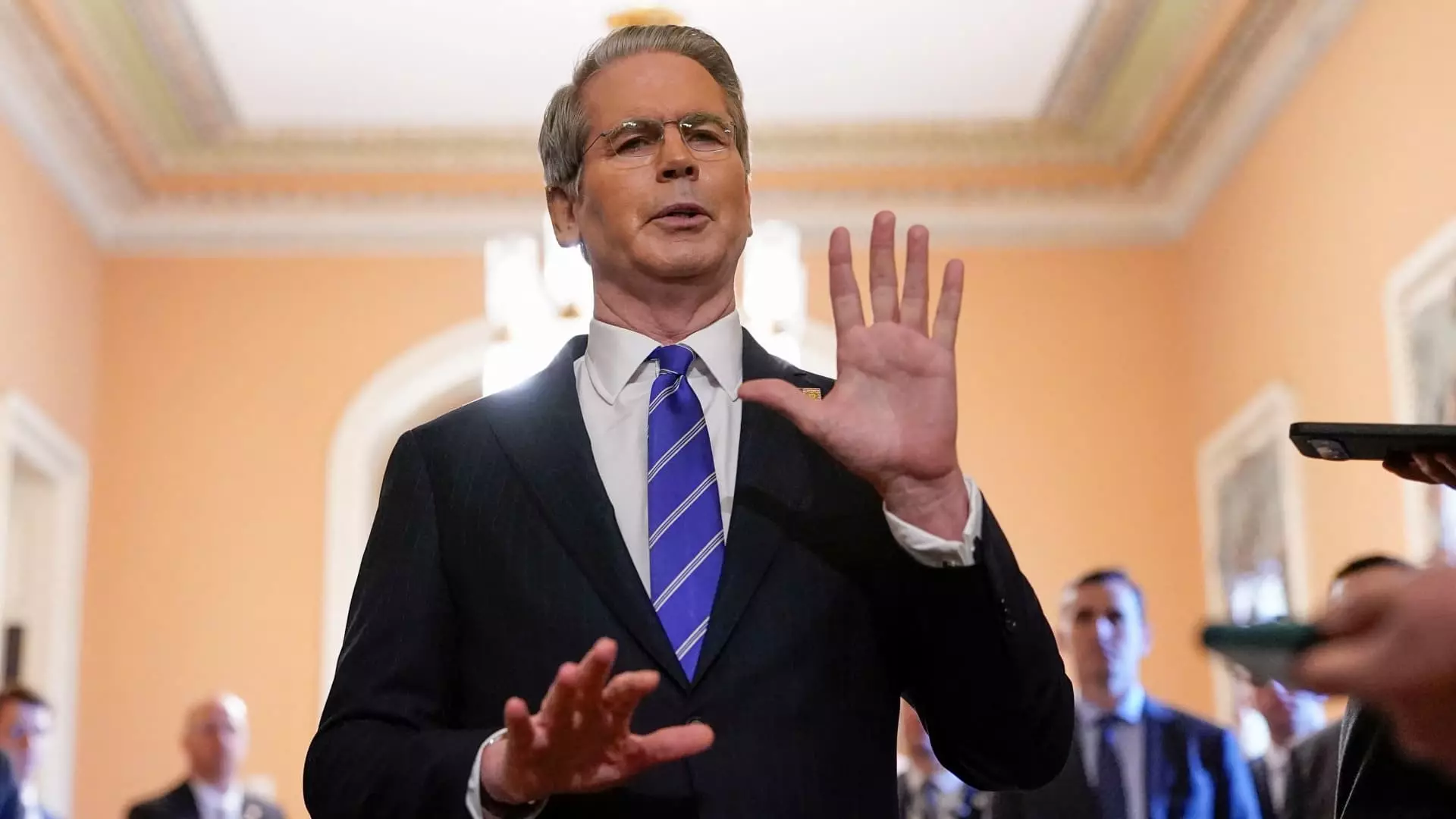The recent announcement by Treasury Secretary Scott Bessent about impending tariffs reveals a stark reality: the Trump administration’s approach to trade is riddled with unpredictability and a reckless disregard for global stability. Instead of engaging in meaningful negotiations, it appears that a game of brinkmanship is being played, using vague deadlines and ambiguous communication as leverage. This not only undermines trust among trading partners but also reflects a perilous overconfidence that could backfire catastrophically. The administration’s refusal to provide clear pathways toward resolution demonstrates a fundamental failure in diplomatic foresight, risking long-term damage to international economic relationships.
Economics at the Mercy of Political Posturing
The use of tariffs as a weapon reveals a shortsighted economic strategy that prioritizes short-term political gains over sustainable growth. While some may argue that tariffs serve as a bargaining chip, the reality is that they disrupt supply chains, inflate consumer prices, and stifle innovation. The threat of re-escalation on August 1, coupled with the vague promise of negotiations, appears more like a tactic of intimidation than a genuine effort to foster mutually beneficial agreements. This aggressive stance risks alienating allies and adversaries alike, potentially igniting trade wars that could hamper global economic recovery, especially in a post-pandemic world already fragile from recent shocks.
Failing to Recognize the Global Consequences
Imposing tariffs unilaterally without regard for the nuanced interconnectedness of today’s economy blinds the administration to the broader consequences. Countries retaliate, markets respond with volatility, and confidence plummets. The administration’s approach seems to ignore the fact that global supply chains are intricately woven, and disruptions ripple across continents. Instead of seeking collaborative solutions, the administration’s tactics appear to threaten a new era of protectionism that could erode decades of economic progress. This shortsightedness disregards the fundamental need for multilateral cooperation in solving shared economic challenges, risking a future where trade conflicts replace constructive dialogue.
A Call for Responsible Leadership
Progress in international trade demands leadership grounded in diplomacy, patience, and an understanding of mutual benefits. The current path, marked by threats and uncertainty, undermines these principles. A more responsible approach would involve transparent negotiations, listening to the concerns of trading partners, and prioritizing long-term relationships over quick political wins. The U.S. risks becoming isolated by stubbornly pursuing tariffs, losing influence on the global stage, and suffering economic setbacks that could have been mitigated through diplomacy. True leadership entails acknowledging the complexity of international trade rather than simplifying it into a zero-sum game that endangers all involved.


Leave a Reply